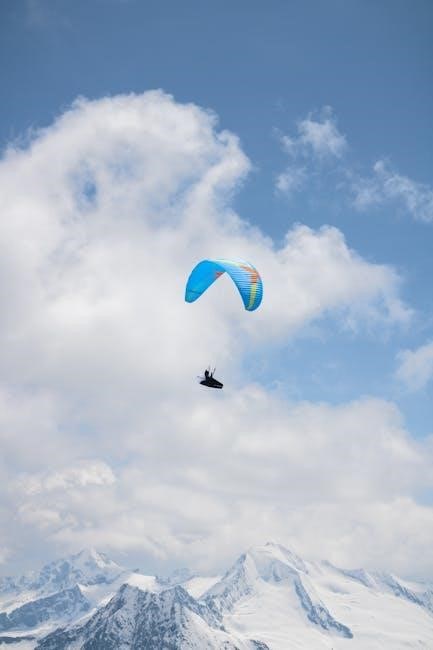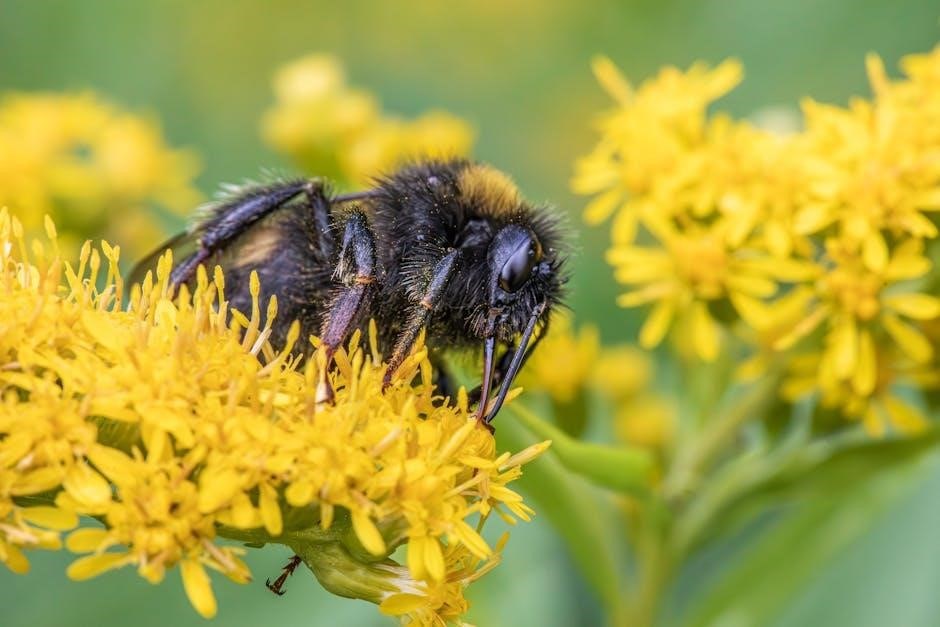No-grid survival projects offer practical strategies for self-sufficiency, emphasizing renewable resources and independence. Resources like Sophia Hall’s 126-page guide and Brian Maggard’s manual provide essential survival techniques, ensuring preparedness for off-grid living while adapting to challenging environments.
Overview of Off-Grid Survival
Off-grid survival focuses on self-reliance, disconnecting from public utilities to live sustainably. It involves renewable energy, water purification, and food production. Resources like Sophia Hall’s 126-page guide and Brian Maggard’s manual offer practical strategies. These guides emphasize independence, adapting to environments without reliance on modern infrastructure. They cover essential skills, tools, and techniques for thriving in wilderness or disaster scenarios. Off-grid survival is about preparedness, resilience, and harmony with nature, ensuring safety and sustainability in challenging conditions. These materials are invaluable for those seeking to embrace a self-sufficient lifestyle.
Importance of Preparation and Planning
Preparation and planning are crucial for thriving in off-grid environments. A well-thought-out strategy ensures access to essential resources like water, food, and shelter. Without proper planning, survival becomes challenging, emphasizing the need for skills and tools. Guides like Sophia Hall’s and Brian Maggard’s provide detailed strategies, highlighting the importance of being proactive. Understanding legal and ethical considerations also plays a role in sustainable off-grid living. Preparation ensures safety, self-sufficiency, and the ability to adapt to unforeseen challenges, making it the cornerstone of successful no-grid survival projects.

Key Concepts of No-Grid Survival
No-grid survival focuses on self-sufficiency, renewable energy, and independence from public utilities. Essential skills include water purification, shelter building, and food production, ensuring resilience in off-grid environments.
What is Off-Grid Living?
Off-grid living refers to a lifestyle disconnected from public utilities, relying on renewable energy and self-sufficiency. It emphasizes independence, sustainability, and resilience, often incorporating solar power, water purification, and food production. This approach minimizes dependence on external resources, fostering a closer connection to nature and promoting environmental stewardship. Resources like Sophia Hall’s and Brian Maggard’s guides provide practical strategies for adapting to off-grid environments, ensuring preparedness and survival in challenging conditions. These materials highlight essential skills and tools, offering a comprehensive path to achieving true independence.
Essential Skills for Survival
Mastering essential survival skills is crucial for thriving in off-grid environments. Adaptability, first aid, and navigation are fundamental, alongside water purification and food procurement techniques. Sophia Hall’s and Brian Maggard’s guides emphasize these skills, providing practical strategies for self-reliance. Understanding how to build shelter, start a fire, and defend oneself ensures safety. These resources, available in PDF formats, offer comprehensive instruction, enabling individuals to navigate challenges confidently. Developing these skills is vital for long-term sustainability and independence, making them indispensable for any off-grid survival plan.
Tools and Equipment for Off-Grid Survival
Essential tools for off-grid survival include water purification systems, solar-powered generators, and multi-functional survival gear. Resources like Sophia Hall’s guide highlight the importance of portable equipment such as water filters, first aid kits, and renewable energy setups. These tools enable individuals to harness natural resources efficiently, ensuring sustainability and safety in remote environments. Additionally, DIY projects like building solar stills, as detailed in free PDF manuals, provide practical solutions for water extraction. Investing in durable, versatile equipment is crucial for thriving in off-grid conditions, as emphasized in Brian Maggard’s comprehensive survival guide.

Popular No-Grid Survival Projects
Notable resources include Sophia Hall’s 126-page guide and Brian Maggard’s manual, offering practical survival strategies. Curse of Strahd also provides unique insights into off-grid tactics and preparedness.
No-Grid Survival Projects by Sophia Hall
Sophia Hall’s No-Grid Survival Projects is a comprehensive 126-page guide offering practical strategies for off-grid living. It covers essential survival techniques, self-reliance, and adapting to challenging environments. The guide includes insights from various sources, such as Curse of Strahd, blending survival skills with real-world applications. Hall’s work emphasizes preparedness, renewable energy, and water management, making it a valuable resource for those seeking independence. Its popularity stems from its detailed approach to off-grid survival, providing readers with actionable steps to thrive in remote or disaster scenarios.
Brian Maggard’s No-Grid Survival Guide
Brian Maggard’s guide is a comprehensive resource for off-grid survival, offering practical strategies for self-sufficiency. It covers renewable energy, water purification, and shelter building, ensuring preparedness for challenging environments. The guide emphasizes essential skills for independence, making it a popular choice for those seeking sustainable living solutions. Available as a free PDF, it provides detailed insights into off-grid systems, food production, and security measures, helping individuals adapt to wilderness survival and grid-independent lifestyles effectively.
Curse of Strahd and Its Relevance to Survival Strategies
The Curse of Strahd, a popular Dungeons & Dragons module, surprisingly offers insights into survival strategies. Its themes of navigating hostile environments, managing resources, and solving complex problems mirror real-world survival challenges. Players must adapt to unpredictable situations, much like off-grid living, emphasizing preparedness and strategic thinking. The module’s focus on terrain navigation and resource management aligns with wilderness survival skills. While not a traditional survival guide, it fosters problem-solving and adaptability, valuable for no-grid scenarios. PDF resources on this topic highlight how such narratives can inspire practical survival strategies, blending fantasy with real-world applications.

Water Purification and Management
Effective water purification is crucial for survival, utilizing methods like solar stills and filtration. Guides such as Sophia Hall’s and Brian Maggard’s PDFs provide detailed techniques for safe water extraction and management in off-grid environments.
Methods for Water Purification in the Wilderness
Effective water purification is crucial for survival. Methods include boiling, sand filtration, and solar disinfection. Boiling kills pathogens, while sand filters remove impurities. Solar stills extract water from soil or plants using sunlight. Natural methods, like using charcoal or plant fibers, can also purify water. These techniques ensure safe drinking water in off-grid environments, essential for sustaining life without modern amenities. Always prioritize water purification to prevent illnesses and maintain health in wilderness settings.
Building a Solar Still for Water Extraction
A solar still is a vital tool for water extraction in off-grid survival, using sunlight to evaporate and condense water from plants or soil. Materials like a container, plastic sheet, and rocks are essential. This method is simple, effective, and reliable for obtaining clean water in wilderness settings, ensuring hydration without relying on external resources. Guides like Sophia Hall’s and Brian Maggard’s detail step-by-step construction, making it accessible for anyone preparing for survival situations.

Renewable Energy for Off-Grid Survival
Renewable energy is crucial for off-grid survival, with solar power systems and wind energy applications offering sustainable solutions. DIY projects enhance energy independence, ensuring reliability in remote settings.
Solar Power Systems for Off-Grid Homes
Solar power systems are a cornerstone of off-grid living, enabling homes to harness renewable energy. Photovoltaic panels convert sunlight into electricity, stored in batteries for nighttime use. Charge controllers regulate energy flow, preventing overcharging. Inverters convert stored DC power to AC for household appliances. These systems are scalable, from small setups for lighting to comprehensive solutions powering entire homes. Free PDF guides, such as those by Sophia Hall and Brian Maggard, detail installation and maintenance tips, making solar energy accessible for off-grid survival. Solar power offers reliability, sustainability, and energy independence, essential for remote living.
Wind Energy and Its Applications
Wind energy is a reliable renewable resource for off-grid survival, providing power through turbines that convert wind motion into electricity. It is particularly effective in open, windy areas, making it ideal for remote locations. Small-scale wind systems can charge batteries, power essential devices, and support energy independence. Many free PDF guides, such as those found in survival manuals, detail DIY wind turbine setups and maintenance tips, emphasizing its practicality for self-sufficiency. Wind energy, when combined with solar power, creates a balanced off-grid energy system, ensuring consistent power supply even in challenging conditions.
DIY Renewable Energy Projects
DIY renewable energy projects are essential for off-grid survival, offering sustainable solutions for power generation. Solar panels, wind turbines, and hydro systems can be built at home, reducing reliance on traditional grids. Guides like Sophia Hall’s and Brian Maggard’s provide detailed instructions for constructing these systems. Small-scale wind energy projects and solar stills for water extraction are also popular. These projects empower individuals to harness nature’s resources efficiently, ensuring energy independence. Free PDF resources often include step-by-step plans, making it easier for beginners to start their renewable energy journey and enhance their off-grid survival capabilities.
Shelter and Protection
Building a Survival Shelter
Shelter and protection are crucial for survival, focusing on building durable structures and securing locations. Guides like Sophia Hall’s and Brian Maggard’s offer practical blueprints and strategies for safe off-grid living.
Building a survival shelter is a critical skill for off-grid living, providing protection from harsh weather and wildlife. Natural materials like branches, leaves, and snow can be used to construct sturdy shelters. Techniques such as lean-to structures or debris huts are effective. Free PDF guides, including those by Sophia Hall and Brian Maggard, offer detailed instructions for building shelters in various environments. These resources emphasize sustainability and resourcefulness, ensuring safety and comfort in wilderness settings. They also cover psychological aspects, like maintaining morale while constructing shelter. Reliable PDFs can be found on trusted survival forums and websites.
Fortification Techniques for Off-Grid Structures
Fortifying off-grid structures is crucial for security and durability. Techniques include reinforcing walls with steel or concrete, installing secure doors and windows, and using natural barriers like earth berms. Strategic placement of structures can enhance defense, while surveillance systems and alarm mechanisms add layers of protection. Natural materials like timber and stone blend with the environment, offering both camouflage and strength. These methods ensure safety while maintaining the benefits of off-grid living, as detailed in resources like Brian Maggard’s guide, which provides practical insights for securing remote properties effectively.
Food Production and Preservation
Essential for survival, food production involves permaculture and sustainable farming, while preservation methods like canning, dehydrating, and root cellaring ensure long-term food supply, sustaining life off-grid.
Permaculture and Self-Sufficiency
Permaculture is a sustainable design system that mimics natural ecosystems, promoting self-sufficiency in food production and resource management. It integrates renewable energy, water conservation, and eco-friendly practices, ensuring long-term sustainability. By adopting permaculture principles, individuals can create thriving, biodiverse environments that reduce reliance on external resources. This approach is central to no-grid survival, as it fosters resilience and independence. Guides like Sophia Hall’s No-Grid Survival Projects offer practical insights into permaculture techniques, empowering individuals to build self-sufficient lifestyles and thrive in off-grid environments.
Food Storage and Preservation Techniques
Effective food storage and preservation are critical for long-term survival off the grid. Techniques like dehydration, canning, and vacuum-sealing help maintain food quality and prevent spoilage. Root cellars and smokehouses are traditional methods for preserving fruits, vegetables, and meats. Proper storage containers and rotation systems ensure food remains edible for extended periods. These methods minimize waste and provide a reliable food supply, essential for self-sufficiency in remote or challenging environments.

Defense and Security
Securing off-grid properties and mastering self-defense strategies are crucial for survival. Guides like Sophia Hall’s and Brian Maggard’s offer practical advice on protecting your off-grid lifestyle effectively.
Self-Defense Strategies for Off-Grid Living
Self-defense is critical for off-grid living, where access to emergency services may be limited. Mental preparedness, physical training, and knowledge of hand-to-hand combat are essential. Carry non-lethal tools like pepper spray or stun guns for deterrence. Establish a secure perimeter with traps or alarms to alert you of potential threats. Always stay vigilant and aware of your surroundings. Building a strong community network can also enhance safety. Regularly practice self-defense techniques to ensure readiness in high-stress situations. These strategies help protect you and your family in isolated environments.
Setting Up a Secure Off-Grid Property
Securing an off-grid property involves strategic planning to ensure safety and self-sufficiency. Start by assessing the land for natural defenses and potential vulnerabilities. Install surveillance systems and reinforced fencing to deter intruders. Consider implementing alarm systems powered by renewable energy sources like solar or wind. Secure storage for food, water, and tools is essential to maintain supplies during emergencies. Additionally, establish a safe room or bunker for extreme situations. Utilize natural camouflage to blend the property into its surroundings, reducing visibility to outsiders. These measures ensure a secure and sustainable off-grid lifestyle, as detailed in survival guides like Sophia Hall’s and Brian Maggard’s PDF resources.

Communication in No-Grid Environments
Alternative Communication Methods
In no-grid environments, reliable communication is vital. Methods like two-way radios, ham radios, and whistle signals ensure connectivity. Solar-powered devices and DIY radio systems are practical solutions.
Off-grid survival often requires reliable communication without modern amenities. Two-way radios and ham radios are excellent alternatives, providing direct connectivity over short and long distances. Messenger systems, such as using runners or establishing signal fire protocols, offer low-tech but effective solutions. These methods ensure communication remains possible even in the most remote or disaster-stricken areas. Resources like Sophia Hall’s and Brian Maggard’s guides detail these strategies, making them accessible for those preparing for off-grid scenarios. Staying connected is crucial for safety and coordination, and these alternatives prove indispensable in survival situations, enhancing overall preparedness and resilience.
Building a DIY Radio System
A DIY radio system is crucial for communication in off-grid survival. Start with basic components like an antenna, transmitter, and receiver. Use easily sourced materials and consider solar power for energy. A simple crystal radio can function without electricity, picking up AM stations. Ensure durability for rough handling and explore repurposing old electronics. Check legal frequency usage and consider a Ham radio license for advanced needs. Follow clear steps to assemble, focusing on practicality and survival applications. Troubleshooting tips and antenna optimization will enhance reception, making it a reliable tool in emergencies.

Legal and Ethical Considerations
Ensure legal compliance with regulations and ethical practices in research and publication, respecting intellectual property and proper citation when accessing free resources.
Laws and Regulations for Off-Grid Living
Laws and regulations for off-grid living vary by region, often involving zoning, environmental, and safety standards. Many areas require permits for alternative energy systems or water collection methods. Health codes may apply to waste management and water purification systems. It’s crucial to consult local authorities to ensure compliance. International examples, like those referenced in the Russian Science Citation Index, highlight legal adaptations for sustainable practices. Staying informed about these regulations is essential to avoid legal issues while maintaining self-sufficiency.
Ethical Practices in Wilderness Survival
Ethical practices in wilderness survival emphasize minimizing environmental impact while ensuring safety. Key principles include leaving no trace, respecting wildlife habitats, and using resources sustainably. It’s crucial to avoid overharvesting plants or disturbing ecosystems, ensuring future generations can benefit from the same resources. Additionally, ethical considerations involve respecting local regulations and private property rights. Survivors should also prioritize humane treatment of animals and avoid unnecessary harm. By adhering to these guidelines, individuals can maintain a balance between survival needs and environmental stewardship, fostering a responsible approach to off-grid living.

Case Studies and Success Stories
Free PDFs reveal real-life survival scenarios, showcasing individuals thriving off-grid. Stories highlight practical techniques, inspiring self-reliance and resilience in challenging environments through proven survival methods and strategies.
Real-Life Examples of Off-Grid Survival
Real-life examples of off-grid survival highlight individuals and communities thriving without reliance on public utilities. Guides like Sophia Hall’s 126-page manual and Brian Maggard’s expertise offer practical strategies. Many enthusiasts have implemented these techniques, building sustainable shelters, harnessing renewable energy, and purifying water. These examples demonstrate resilience and adaptability, proving that off-grid living is achievable. From homesteaders in remote areas to urban preppers, these stories inspire others to embrace self-sufficiency. Reliable PDF resources, such as survival manuals, provide detailed instructions for replicating these successes, making off-grid survival accessible to everyone.
Lessons Learned from Experienced Survivors
Experienced survivors emphasize adaptability and resilience in no-grid environments. Resources like Sophia Hall’s 126-page guide and Brian Maggard’s manual highlight essential techniques for water purification, renewable energy, and shelter building. These materials underscore the importance of practical skills, such as DIY solar stills and fortification methods, to ensure long-term sustainability. Survivors also stress the need for mental preparedness and community reliance. Free PDFs, such as those detailing off-grid projects, provide accessible knowledge for beginners, offering real-world insights and proven strategies for thriving without modern infrastructure.

Downloading Free Resources
Find reliable PDFs like Sophia Hall’s 126-page guide and Brian Maggard’s manual for no-grid survival. Free downloads are available online, ensuring access to essential survival knowledge and techniques.
Where to Find Reliable Free PDFs
Reliable free PDFs on no-grid survival can be found on trusted platforms like survival forums, official author websites, and reputable repositories. Sophia Hall’s 126-page guide and Brian Maggard’s manual are popular choices. Websites offering free survival manuals often curate content from experienced survivalists. Ensure to verify the source’s credibility to avoid low-quality or misleading materials. Additionally, platforms like PDF repositories and survival communities provide accessible resources. Always check for user reviews or ratings to ensure the PDF’s quality and relevance before downloading.
How to Verify the Quality of Downloaded Materials
Verifying the quality of downloaded PDFs ensures reliability and safety. Check the source’s credibility and read user reviews. Look for clear, well-organized content free from errors. Ensure the material aligns with the title and covers essential survival topics. Scan for expert endorsements or references to established survival practices. Avoid files with unrelated content or excessive advertisements. Use antivirus software to protect against malicious downloads. Prioritize PDFs with practical, actionable advice and clear instructions. Verify the publication date to ensure the information is up-to-date. Reliable materials will enhance your preparedness and survival skills effectively.
Summarizing Key Takeaways
No-grid survival projects emphasize self-reliance and sustainability, offering practical guides like Sophia Hall’s and Brian Maggard’s resources. These materials provide essential strategies for off-grid living and preparation.
No-grid survival projects emphasize self-sufficiency and preparedness, offering strategies to thrive without reliance on modern infrastructure. Key takeaways include the importance of renewable energy, water purification, and sustainable food production. Resources like Sophia Hall’s 126-page guide and Brian Maggard’s manual provide practical insights, while tools such as solar stills and DIY renewable energy systems are essential for off-grid living. These projects also highlight the need for secure shelters, defense strategies, and reliable communication methods. By adapting these techniques, individuals can achieve independence and resilience in challenging environments, ensuring long-term survival and sustainability.
Encouragement for Further Exploration
Exploring no-grid survival projects can be a transformative journey toward self-sufficiency. With resources like Sophia Hall’s and Brian Maggard’s guides, you can gain invaluable insights. Dive into free PDFs, such as the 126-page manual by Sophia Hall, to uncover practical survival strategies. Engage with communities and real-life success stories to stay inspired. Remember, preparedness is key, and continuous learning will empower you to thrive in any environment. Take the next step by downloading reliable materials and applying their lessons to your own survival plans.
